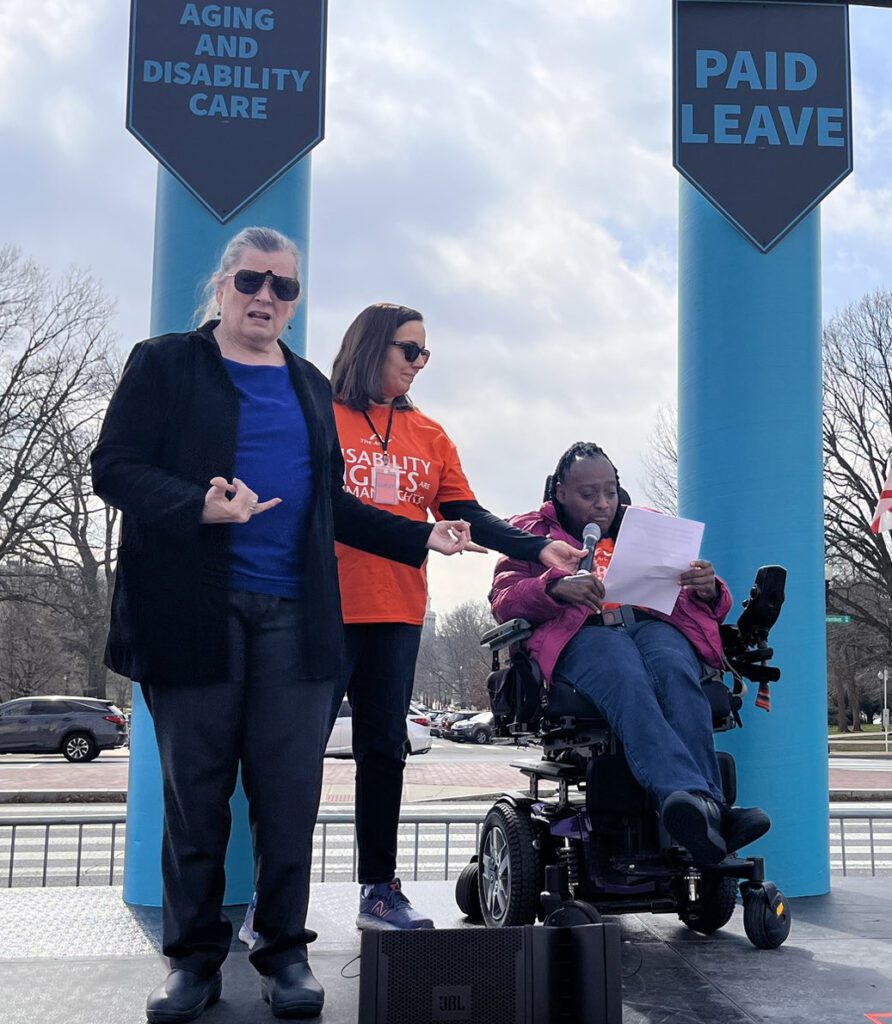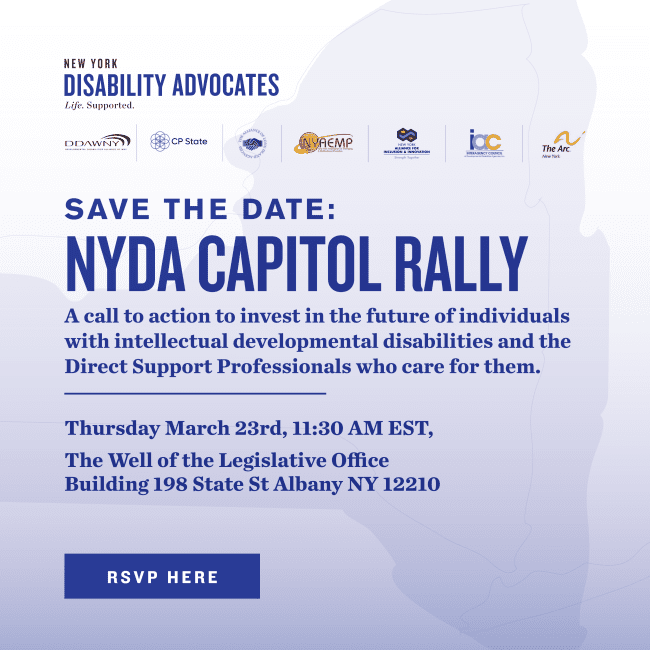Let's all do our part to help protect the funding and availability of services for people with intellectual/developmental disabilities including paying our valued staff the living wage they deserve!
How to Help
Tell Congress: No Cuts to Medicaid and No Work Requirements! |
On Wednesday, April 26, the U.S. House of Representatives is scheduled to vote on a funding bill that would be devastating to people who receive Medicaid, including people with disabilities, their families, and the workers who support them.
The bill includes a whole new set of eligibility requirements for everyone on Medicaid to meet.
- For millions of people, this bill would mean work requirements and complicated red tape to maintain services.
- This bill could result in over $100 billion in cuts to Medicaid.
These requirements would apply to all Medicaid pathways, including Supplemental Security Income and home and community-based services waivers. We can’t let this happen!
Making cuts to Medicaid and adding more red tape would make it even harder for people to access the vital care they need to thrive.
Tell your members of Congress it's time to prioritize families!
Advocates and members of Congress gathered in Washington, DC to show their support for home and community-based services, paid leave, and child care.
Lolita, an advocate from Washington, DC spoke at the event and shared why home and community-based services are so important to her independence and allow her to live the way she wants to live.
“Many people with disabilities are on a fixed income, we have bills to pay. I live alone, and to be out in the community and get to my appointments, I need a strong system in place that I can afford and supports me to get out there. We desperately need the income to keep our aides with us. The work they do deserves a fair wage.”
– Lolita (pictured far right)
Medicaid home and community-based services play a vital role in supporting people with disabilities to live in the community, in their own homes instead of institutions—but there isn’t enough money in the program to support everyone.
We are in a care crisis, and it’s getting worse every day.
- Over 650,000 people are stuck on waiting lists and not getting the services they need.
- Direct care workers, who provide life-sustaining care, do not earn a living wage. This contributes to high turnover rates and leads to critical gaps in care for people with disabilities.
- Too many unpaid family caregivers are struggling to fill in the gaps in service, often at the expense of their own health.
Visit the New York Alliance for Inclusion and Innovation’s Advocacy page, and tell your elected officials to support Living Wage and COLA initiatives for our Direct Support Professionals.



